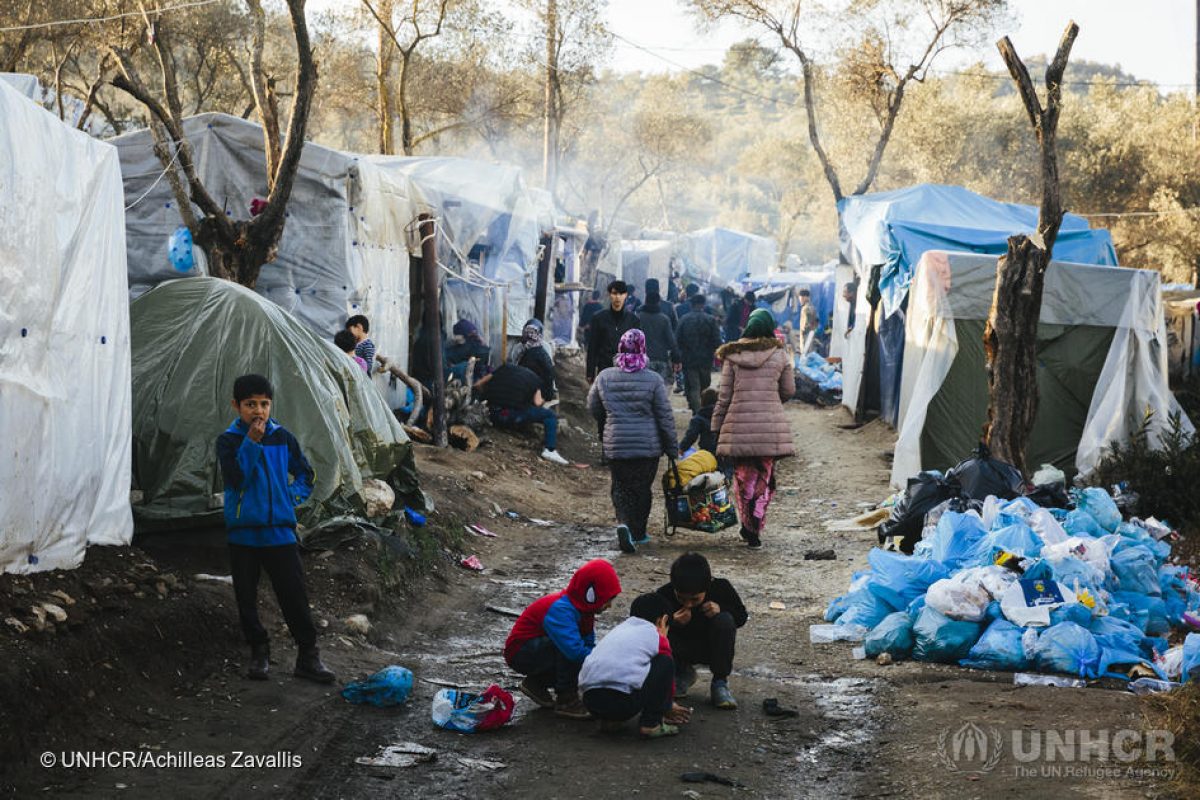May the Coronavirus Crisis Open Our Eyes and Hearts

By Msgr. Robert J. Vitillo*
This is a time when grave concerns for the health and safety of ourselves, family, and loved ones occupy our thoughts — and understandably so. The coronavirus pandemic is evolving into a public health crisis unprecedented in modern times. Thousands of people are getting sick around the world. Although the vast majority recover from the symptoms related to this virus, many of the more vulnerable persons infected, especially the elderly and those with pre-existing illnesses, have developed more severe reactions and have died. Public health authorities at global and national levels are bracing for a worsening situation.
In times such as these, it’s the responsibility of each one of us to contribute to halting the spread of the virus. Public health authorities advise social distancing and emphasize that other measures of hygiene, including frequent handwashing with soap and water, are effective measures to prevent spread of the virus. These public health messages are readily available on websites, in social media, and in communications media such as television and radio. We all should be following and applying them closely.
As necessary as those measures are, it’s also crucial not to fall into the temptation of succumbing to panic or to blaming others. This is a time for solidarity and mutual care, values and principles that are fundamental to most major faith traditions.
During his weekly General Audience of 11 March, Pope Francis expressed heartfelt gratitude to “the hospital personnel, the doctors and nurses, and the volunteers who are close to those suffering.” He thanked “all Christians, all men and women of goodwill who pray at this moment, all united, no matter what religious tradition to which they belong.”
Pope Francis also reminded all of us that some are even more vulnerable than ourselves, including those whom the International Catholic Migration Commission (ICMC) is mandated to serve, the refugees, migrants, survivors of human trafficking, and other forcibly displaced people. Thus, the Pope appealed: “I do not want this pain, this pandemic, which is so strong, to make us forget the poor Syrians, who are suffering at the border of Greece and Turkey: a people suffering for years. They have to flee from war, from hunger, from illnesses. Let us not forget our brothers and sisters who are suffering there.”
In response to the coronavirus pandemic, we at ICMC are working to protect the people we serve, our staff, and the communities in which we operate. We continue our services to refugees and migrants in need, providing them with critical humanitarian services, including access to healthcare, counseling and referrals, among others. When public health authorities decide that we must close our offices, we then make every effort to respond to the needs of our beneficiaries through helplines and other technological means. As of this week, our staff at headquarters and field offices are working remotely as much as possible, to protect themselves, their families, and the people whom we serve and might be among the most vulnerable to infection, as well as to reduce the spread of the virus in the community.
The coronavirus pandemic has the potential to unleash astonishing disruptive power. Just think about it: entire aspects of our routine, everyday lives, which we took for granted until a few weeks ago, are grinding to a halt. As we observe our reactions to the crisis, as well as those of our neighbors, we realize both the fundamental fragility that underpins our lives and our societies, as well as their fundamental interconnectedness.
Five years ago, Pope Francis, in his encyclical Laudato Sì, already identified the need for us, members of the one human family, created in the image and likeness of our one God, to stay firm in the “conviction which we today share, that everything is interconnected, and that genuine care for our own lives and our relationships with nature is inseparable from fraternity, justice, and faithfulness to others.”
For sure, we now are confronted by a time full of anxiety and fear. Let’s also make it a time for empathy and solidarity; let’s also be deeply sensitive to the needs of the most vulnerable, including the migrants and refugees, who are the special concern of ICMC. While we continue accompanying the many displaced people throughout the world, as well as those affected by the coronavirus and other needy people in our local communities, let’s get ready for when the coronavirus crisis is no longer a global public health threat. May this crisis open our eyes and hearts to the possibility of our world being different – more caring, more just, and more inclusive.
In the meantime, please be well and take care.
* Msgr. Robert J. Vitillo is ICMC Secretary General